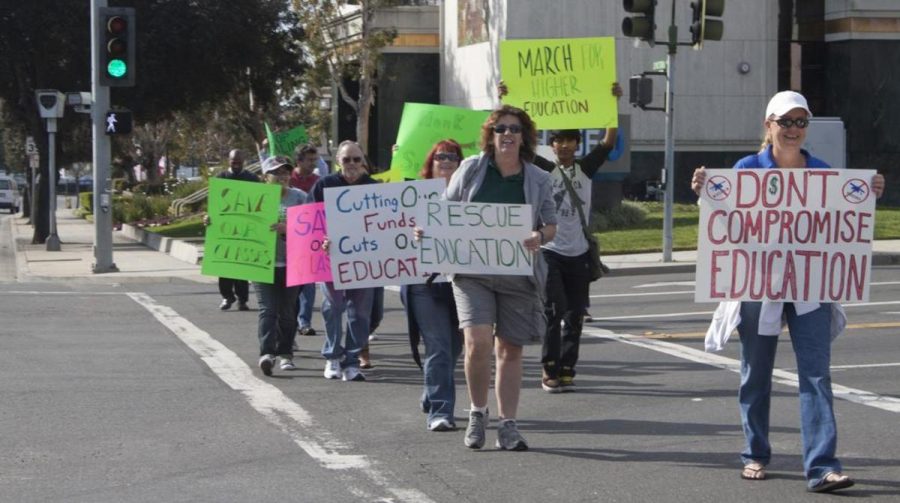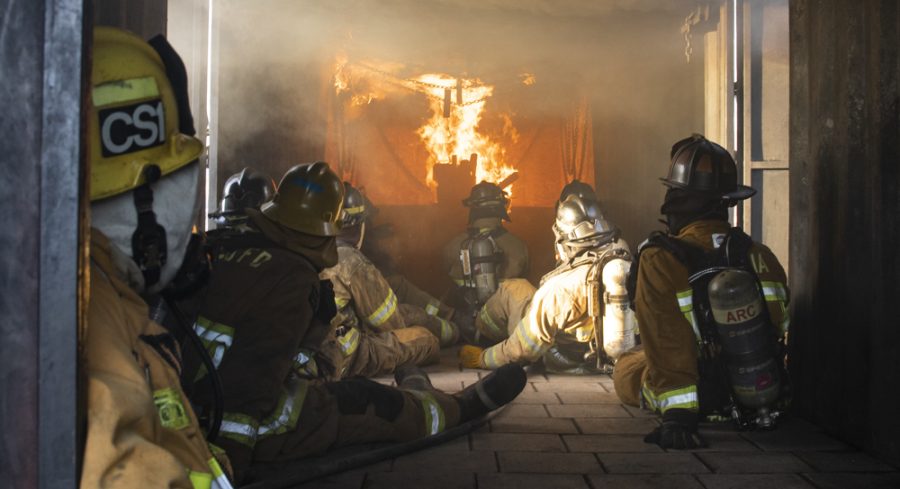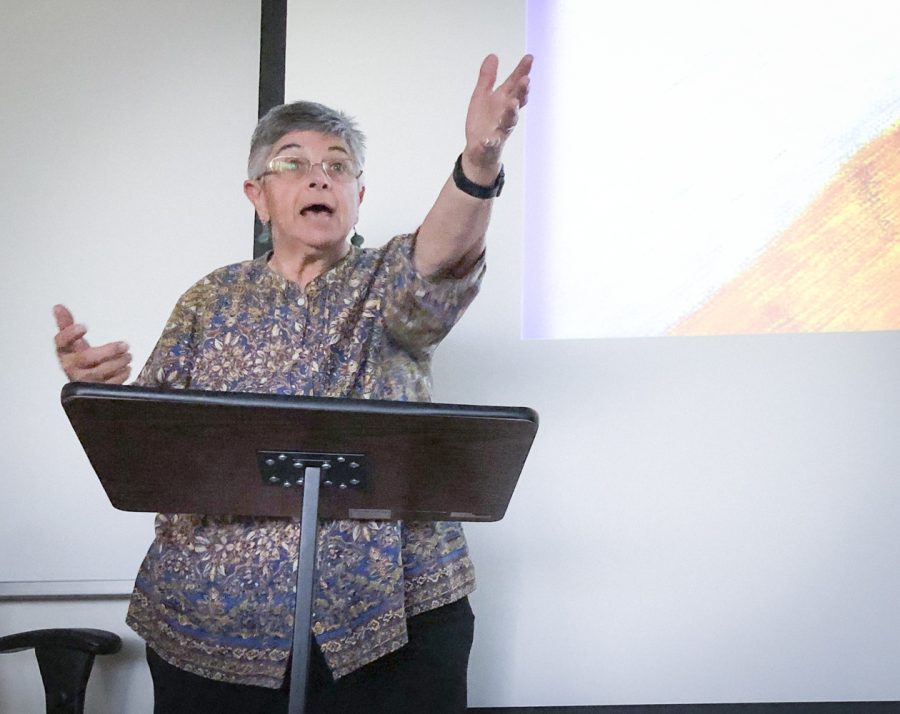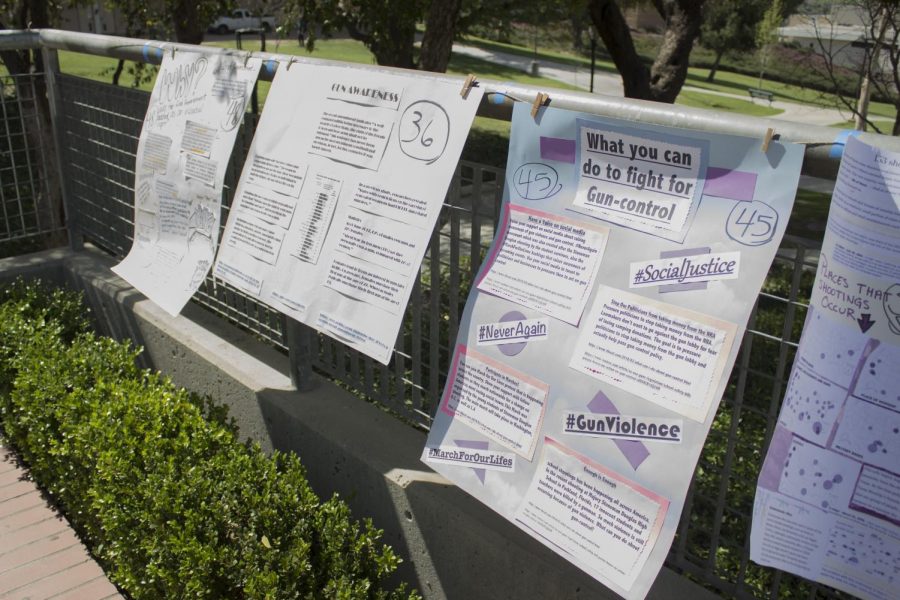As the ‘March for Higher Education’ headed north to Sacramento, some students stayed behind in Ventura, to unite and exercise their right to assembly and protest against the budget cuts to California’s educational institutions.
President’s of almost all Oxnard College clubs gathered together in a recent meeting to discuss how they wanted to represent their school and found that participating in the ‘March for Higher Education’ was an option they were not willing to let pass by.
During their brainstorm however, some presidents determined that many clubs could not afford to travel to Sacramento to assist their fellow peers in lending their voice at the capital.
Lisa Hinkley, Culinary Arts Club President and business major, feels it important to realize that education is everyone’s foundation.
“If we take education away and not give it to our students, then who are we going to give it to?” said Hinkley. “Now, more than ever, with the recession, we can’t take that away because people are going to college since jobs aren’t available.”
The March began at 10 a.m., but students organized themselves at a local fast food restaurant just an hour before. A few moments later, the March became a protest at the corner of Victoria Avenue and Telephone Road in Ventura, which ended promptly at 12 p.m., with a swift walk back to their meeting point.
Students from the Ventura College Associated Students , Oxnard College Addictive Disorders Studies Club, OC Sociology Club, OC Culinary Arts Club, OC MeCHA, OC Chess Club, OC Student Movement, concerned citizens and many more students participated in both the March and peaceful protest on Mar 14.
There were several comments that noted the emotions carried by the students during the March, most of which pertained to the upcoming raise in tuition from $26 to $36 per unit, which of course is the best-case scenario.
The worst-case scenario would mean that students can face a tuition raise from $26 to approximately $66 per unit.
Overall, the community college system in California will soon have to deal with a $400 million budget cut, which was proposed by Gov. Jerry Brown. Students say this cut will dramatically affect the Ventura County Community College District with a deficit of just about $9 million.
Students hope that legislators will vote to place the plan on the June ballot, since it is set to expire this year. The plan would extend tax increases again.
Teresa Montoya, a 32-year-old sociology major and Ventura College student, wants to make sure that every student’s voice is heard on this topic.
“There are a lot of students that are going to be affected by these cuts,” said Montoya. “There are single parents and low-income students that are not going to be able to afford the classes or continue their education.
She heard about the local ‘March for Higher Education’ from fellow peer, Anthony Garnatz, a former OC Associated Student Government Senator who networked with both VC and Moorpark College about the protest.
“This event is very important due to the fact that there are people in our district that are making decisions on what gets cut and what doesn’t,” said Garnatz. “If they don’t hear our voices, they don’t know how we feel.”
Garnatz and Hinkley equally motivated the crowd with chants and flowing energy as students carried their slogans for everyone to see at the corner of the Ventura County Government Center, in hopes of targeting a larger group of people to hear their message.
“I am so happy that we did this,” said Hinkley. “We are the voice and it only takes one person. If we can double that then it’ll be even better.”
The traveling vehicles honked in support and walking pedestrians cheered on as the students chanted, “What do we want? Education! How are we going to get it? We Vote!”
Although only about 35 students participated, their efforts spoke loudly with their high spirits and leadership in sight.
Andrea Howard, OC ADS Club Public Relations Officer, felt it was important for her to participate in this event along with her fellow leaders.
“We need to let our government know how important education is to us,” said Howard. “For the community colleges especially, there is a different demographic than a university. We are people returning to school, changing our professions due to the economy.”
According to Howard, not everyone could afford to go to Sacramento and it was great for her to see the clubs and students come together and participate like this.
Leaders in the March made their presence known and stated that participation and collaboration with their sister colleges and fellow students is only the beginning to their efforts in supporting each other.






